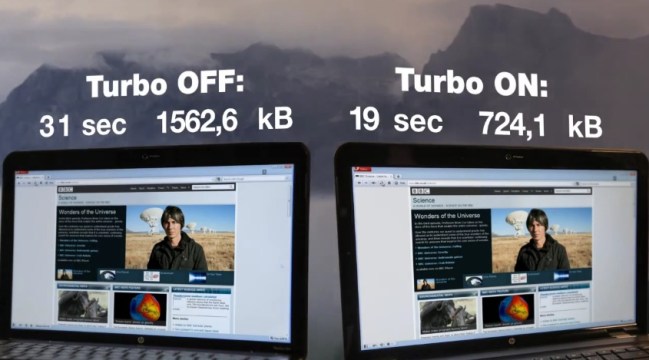
Opera commands about 2 percent of the Internet browser market, but it continually debuts new, innovative features at a pace that outmatches many of the world’s most popular browsers. Today, the Norwegian software company had a little fun as it debuted the newest version of its PC browser: Opera 11.10, which comes loaded with a feature called Turbo, which speeds up the Web for those with slow Internet connections.
Poking fun at Google, Microsoft, Apple, and Mozilla, who have been engaged in a bit of a browser war lately, spending millions to compete with one another. Opera claims that it too has spent big bucks on its new browser. To celebrate the new release, the company has purchased Tacos (both crunchy and soft), fake tans, a racetrack (so they can go fast), trendy Swedish clothes, some guys with a video camera, a disco ball, beer, 3 bottles of generic Pepto-Bismol, and a whole bunch more supplies. They even got a parking ticket, bringing their reckless spending to $8,517.26.
Okay, so they have a ways to go on the spending, but they did attempt to make a rather humorous YouTube video illustrating what Turbo is and how it works. Basically, if you have a slow Internet connection (public Wi-Fi, or tethered to a phone, etc), you can turn on the Turbo button in the lower left of Opera 11.10, which compresses Website images down to make them faster for you to download. Opera claims that this feature could speed you up by as much as 4x. Secure Websites using SSL do not go through Opera’s Turbo, so you don’t have to worry about the browser maker peeking at your private data or bank statements either. Opera Mini for mobile phones has a similar feature, as did older versions of the Opera browser.
The video below demonstrates Opera Turbo. Opera 11 was released late last year. It introduced several other new features, including tab stacking and extensions.


